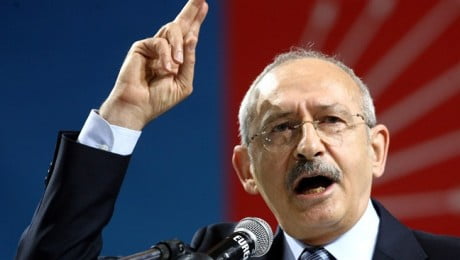Keyword: Fethullah Gulen

Consultation from Gülen’s perspective: The relationship between the ruler and the ruled
Even if the head of state or the leader is confirmed by God and nurtured by revelation and inspiration, he is obliged to conduct affairs by consultation. In fact, any society that has ignored or disregarded this practice has never prospered; rather, it has perished. So the Messenger of God saw the salvation and progress of his community in consultation: “Those who consult do not lose.”
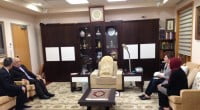
Fethullah Gulen: Turkish Scholar, Cleric — And Conspirator?
Al-Jazeera America reporter Jamie Tarabay interviewed Islamic cleric Fethullah Gulen in his home last spring. It was published in The Atlantic last August. Gulen is a Turkish spiritual leader to millions of Turks, both in Turkey and around the world, and the head of the Gulen movement. His network of followers spans the globe, and it has opened academically-focused schools in 90 countries, including the U.S.

Gülen’s letter to Gül
Koru told Gülen to express his feelings in a letter. The scholar wrote this letter on Dec. 22. Koru took the letter to its addressee, the president. He met with the prime minister the same day in Ankara and told him about his impressions from his contact with Gülen. I mean to say, there is not “bargaining” or “mediation.” There is only a “goodwill initiative” here.
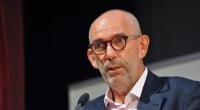
Arbitrary intrusions and dangerous liaisons
If the AKP leader can publicize the mistakes made during the Sledgehammer and Ergenekon trials and convince the public that these were committed by overzealous prosecutors linked to the Gülen movement, it will be easy for him to make a comparison with the corruption allegations against his government.

GYV says Gülen did not send letter to Erdoğan
“In those days [of the corruption debate], it was conveyed to us that President Abdullah Gül, having held meetings with various groups in the name of peace for the nation and to prevent debates from escalating further, wished to send an envoy to Gülen to transmit his thoughts as well as to learn Gülen’s considerations,” Şimşek explained.

Erdoğan isolates himself in power
Erdoğan is picky about journalists escorting him on board his official plane; he doesn’t like to see journalists asking annoying question around him anyway, but this time the criteria became really narrow. Umut Oran, Deputy Chairman of the main opposition Republican People’s Party (CHP) asked the prime minister about his criteria, since Erdoğan excluded most popular papers like Hürriyet, Zaman, Posta, or critical ones like Sözcü, Cumhuriyet, Radikal, and whether the travel expenses of journalists from pro-government papers would be covered on the government budget.
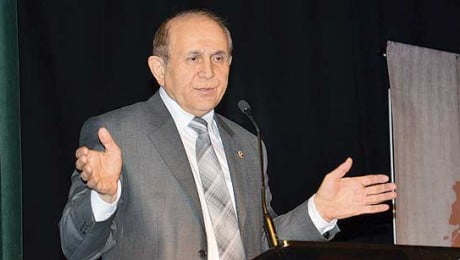
AK Party gov’t violates rule of law with mass profiling of civil servants
Profiling by the government — which a senior member of the ruling Justice and Development Party (AK Party) admitted to over Twitter — of some 2,000 senior public officials including police chiefs, prosecutors and judges as well as academics, journalists and business people is a violation of the constitution, analysts have said.

NPR interviews Stephen Kinzer on graft probe and Fethullah Gulen
A corruption scandal has forced Prime Minister Recep Tayyip Erdogan to reshuffle his cabinet, but he is rejecting calls for his resignation. Three of his ministers have resigned because of the scandal. The situation today is being called the biggest threat yet to Erdogan’s 11 years in office. Stephen Kinzer, visiting fellow at the Watson Institute at Brown University, joins Here & Now’s Robin Young to discuss the unfolding situation in Turkey.

A useful guide to understanding the Hizmet-AK Party tension
Mustafa Yeşil, head of the Journalists and Writers Foundation (GYV), of which Fethullah Gülen is honorary president, talks about the reasons for the increasing tension between the ruling Justice and Development Party (AK Party) government and the Hizmet movement, which conducts praiseworthy activities in Turkey and around the globe with inspiration from well-respected Turkish-Islamic scholar Gülen.
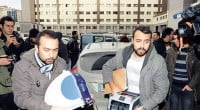
GYV calls on government to respect judiciary amid corruption probe
The government should respect Turkey’s independent judiciary as a corruption probe that has implicated senior members of the ruling party deepens, the Journalists and Writers Foundation (GYV), whose honorary chair is Turkish Islamic scholar Fethullah Gülen, said in a statement published on its website on Monday.

Why Mr. Gülen was targeted
The main difference between Islamic scholar Fethullah Gülen and the politician who became Prime Minister Recep Tayyip Erdoğan is that the former is vehemently opposed to the use and abuse of Islam as a political ideology and party philosophy while the latter sees the religion as an instrument to channel votes and to consolidate his ranks among supporters.
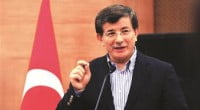
Turkish FM calls on Gülen Movement for dialogue to find way out political crisis
Delivering constructive messages to move away from political crisis over the graft probe, Foreign Minister Ahmet Davutoğlu has invited the Fetullah Gülen movement to engage in “dialogue and a strategic look toward the horizon.”

